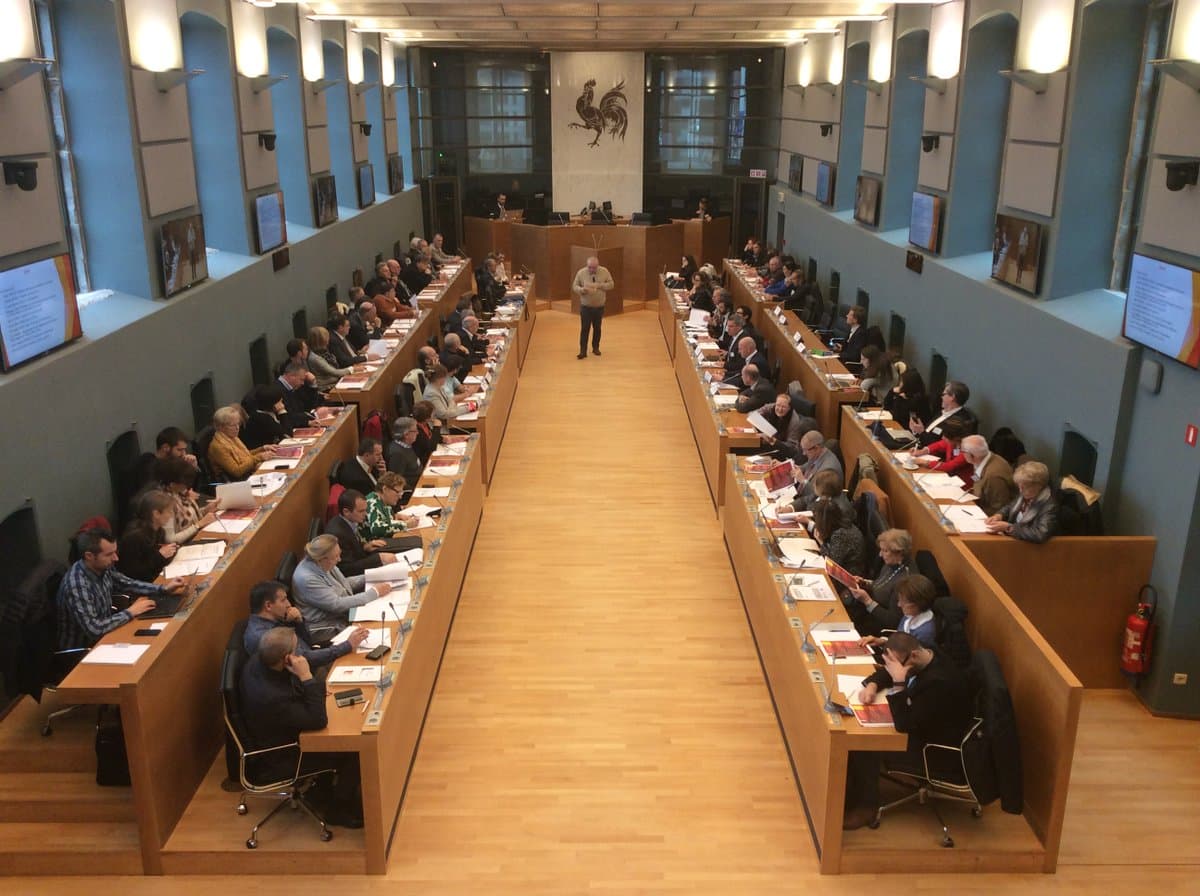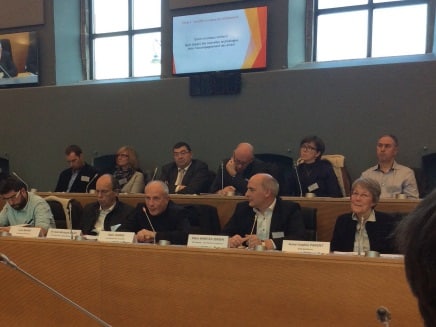
Mr Benjamin ZIMMER, co-founder and director of the Silver Valley in France (Paris region) presented the objectives and activities of Silver Valley, a non-profit organisation gathering the silver economy private and public players of the Paris region. With more than 180 members, the Silver Valley, which relies on both private and public funding with a 50/50 ratio, seeks to foster favourable conditions for the development of the senior market on a national and international level.
Mr Zimmer also presented examples of startups offering services to seniros that they had been supporting so far: famileo, verdurable, CitizenMobility, Buddy-companion robot, Xambox, VAC by C25.

Responding to a statement from a member of the panel who pointed out a lack of expression and awareness by older persons of their actual needs, Mrs Parent asserted that the older population has indeed clear needs and expresses them but tends not to be heard. The partnerships emerging in the field of the Silver Economy should also support the participation and active involvement of older people in order to respond to those needs and expectations. ‘In meeting the needs of the older EU population we will meet the ones of the younger generations’, added AGE Secretary-General.

Representatives of AGE’s Belgian organisation Enéo were part of the debate and highlighted their concerns about ethical issues and the complexity related to the use of new technologies (ICT) to support independent living at home. They also expressed their fear that remaining at home will become an obligation for many older persons in order to save public budget, leaving them with no choice. They would need more information on the issue.
Another question raised during the debate relates to the cost of the use of the assistive technologies to support independent living at home and who will pay for the bill?
2 out of 3 persons cannot afford to enter a rest home and will have to adapt their homes, but with an average pension of 1200 euros monthly, many older persons in Belgium will not be able to pay. To this must be added the difficulties in accessing bank credit at an older age. Will the cost be covered by the public budget?
Discussions also pointed out two essential criteria that should underpin the development of the Silver economy, namely that Silver economy should:
- Generate a job-creating growth
- Develop system that are accessible to the highest number.
Mr Zimmer mentioned a working group set up by Silver Valley aimed to reflect on how to increase seniors’ purchasing power. He further pointed out the participative management as a key concept of Silver Valley, taking different perspectives, needs and interests into consideration, and bringing together ‘those who have the key to the problems with those who have the key to the solution’.
Mr Peter WINTLEV-JENSEN from the European Commission (DG CONNECT) insisted that the debate around the Silver Economy and the ageing of the European population is a large global political and micro-economic issue. The labour force will shrink and we will have to change the way work is organised and help people stay longer in employment. Innovation requires a political framework to ensure a fair society.
AGE Secretary General concluded by inviting the Walloon region to join the European Convenant on Demographic Change, as participants acknowledged that creating partnerships across the European Union is important to share experience, knowledge and optimize investments.






